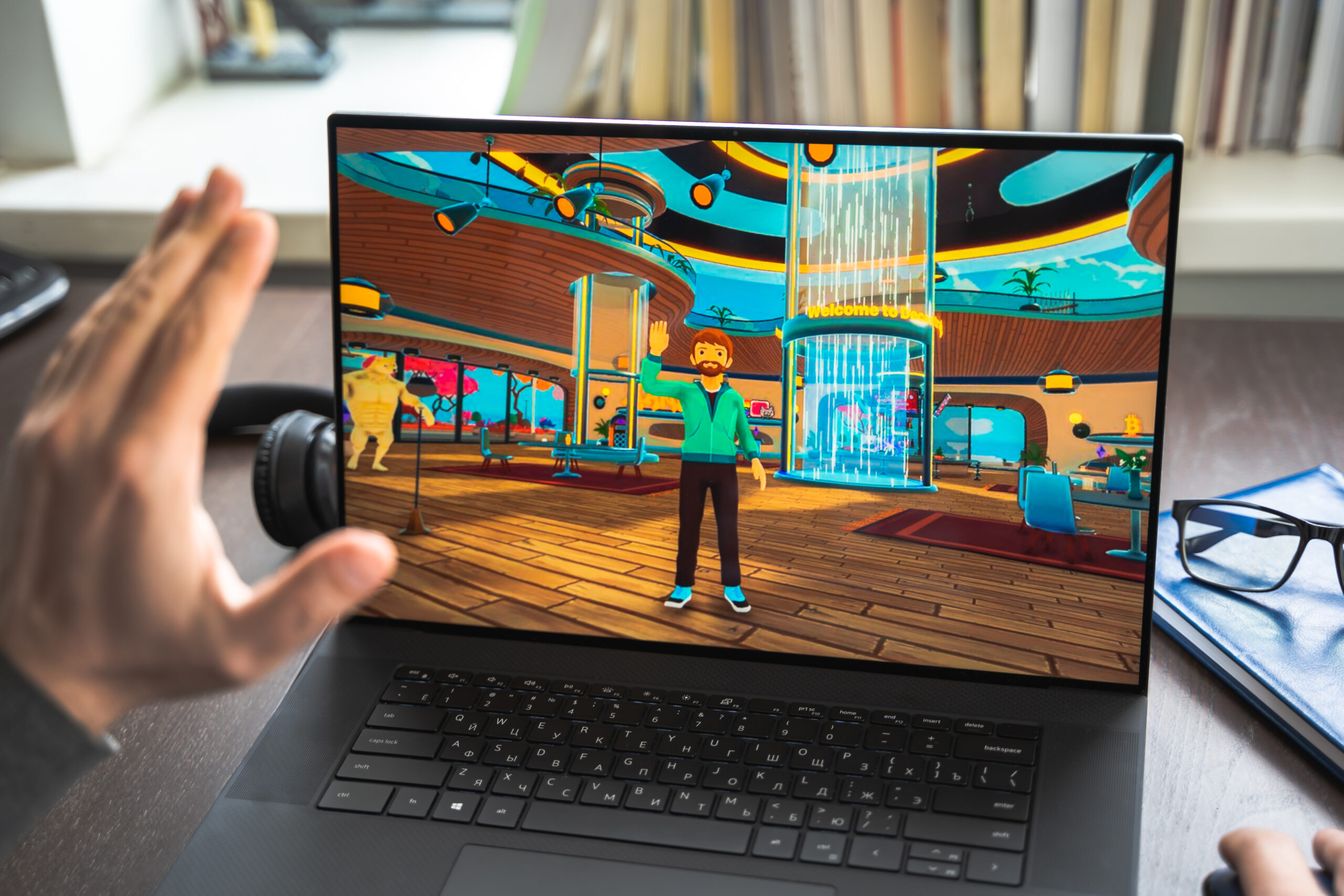
Metaverse
The first time this word has been used was during the TV Show “Snow Crash”, a Sci-Fi novel from 1992. Here the Metaverse was described as a surrogate virtual reality where its users could seek an escape from everyday existence, where people have a representation of themselves through Avatars. Almost three decades later, big tech companies have decided to bet everything in creating this reality.
What today companies like Meta, Google, Microsoft and Apple are trying to accomplish is to create an environment where real experiences can be replicated, or even substituted, with digital one. The hype behind this word is so big that Facebook even changed its name to Meta, and has bought the company Oculus VR to make sure to keep its users anchored to what they are building. Microsoft is justifying its expensive game companies acquisitions, with the fact that they want to create the bricks that will shape the Metaverse.
Truth be told, this whimsical vision can generate trillions in value produced, that will likely end up in the pockets of those that will manage to develop the necessary hardware infrastructure and that will be able to maintain the Metaverse performing as a real life alternative.
In building the metaverse the real challenge will be to upgrade the internet as we know it, a system that has been designed with the purpose to be able to share data from one terminal to another. Its main nature was described as something that would enable a persistent communication with others, not a synchronized communication happening in real time.
What does it mean? Let’s see it with a real example. LinkedIn has almost 700 million users on its platform. When its users interact with others, what is happening is that every individual is using a unique and direct connection to the LinkedIn server that handles the communication with others, so there is no real connection to the people that we are interacting with. It’s all done by a server that can be seen as a middle man (which is also storing your data and then selling them to the highest bidder).
Said that, we have to acknowledge that right now a technology capable of allowing a synchronized experience for hundreds of millions of users at the same time doesn’t exist (yet).

For the Metaverse to be really working and become what everybody is expecting, what should happen is the implementation of new Standards and the design of Protocols different from the one used by the internet today, but dedicated only to this new technology. Where Interoperability and Real Time experiences should be at the center of all. Let’s also not forget the down part of the internet, the vile use of it for spreading lies, false information, hate, radicalization, etc. This will mean that together with new technological standards also new rules will need to be created for maintaining this environment free of censorship but at the same time a safe place for whoever is using it. With this premise, in my opinion there can be three main topics that need to be addressed:
- Proprietary rights should be always guaranteed whatever platform or network it’s used, to make sure that individual’s rights and possession are recognized through a consensus mechanism (meaning that if my identity and possessions are recorded and stored on the blockchain, because the blockchain it’s a public ledger all information are visible to everyone, and because of this principle nobody can claim my identity and my possession, also because data cannot be corrupted or manipulated once stored).
- Tech Companies, Patent Holders, Developers and especially Governments should focus on realizing common laws that will be used in the Metaverse (sounds like a difficult challenge but is the only way to make sure that the Metaverse will be developed in a fair way and that it will be populated by millions of real active users);
- Children/Minors protection and control. Because every user will be associated with an avatar that can resemble anything the user wants, this will make it impossible to determine if behind it there is a minor or an adult. Contents should be developed by keeping this in mind;
We understand with everything said above that the Metaverse might become reality only in the next decade.When I talk about the Metaverse there is an example that I like to do to make people understand who are going to be the real users of the Metaverse. My generation and the generation of my parents, have seen and touched with their hands how technology evolved in the last 30 years, we saw cellphones changing shape and functionalities at the same speed as we would change our shoes almost. We went through an era when for connecting to the internet we had to listen to a disturbing weird noise made by routers for connecting, while nowadays we are able to share wifi’s passwords with friends through a single touch on our phone. We went from chat/messaging systems like MSN(Windows Live Messenger) to Facebook, where every single information about us can basically be found there. We are the transition generation. While Generation Z did not have our same experience. They were born in a world where technology is everything they know, this is the environment that has surrounded them all their life, and they know how to use it to their advantage better than we will ever do. So the Metaverse is for them, we are going to provide the infrastructure and develop the hardware that will make it possible, but they are going to be the real users that will populate it and fill it with things to do, experiences to be lived and good to be consumed.

I believe that the Metaverse should have the following list of properties to be successful, to really be ready to replace the everyday experience with a digital one, without any barriers of time and space.
- To be always online and capable to work in Real-Time for reproducing authentic synchronized experiences, just as it would happen in Real Life;
- To create experiences that can be comparable to real ones;
- To be populated by users that are producing contents and contexts useful and available for the all community;
- To be economically structured, to allow businesses and individuals to possess, sell and invest like they would do in the real world using centralized conventional systems;
- Data correlations, so that information and digital properties owned by the users are recognized on all platforms and networks;
Gaming
It is already possible to affirm that most of the experiences that new tech companies are trying to build/sell in the Metaverse, already exist in Games. But they are still at a very primitive stage. As already said, the experience that the Metaverse wants to be able to provide to its users is a 3D virtual reality powerful enough to reproduce every user’s action in real time, simulating in this way real life performances.
Gaming companies are now fighting hard to be able to provide these kinds of experiences, to attract as many people as possible to be part of their community and to grow as fast as possible. Below are listed two of the earliest Game Companies movers in this field:
- Decentraland: the first one to create a Metaverse. With its own plot of lands that can be enriched with an entire set of items that go from offices, shops, marketplaces to avatars impersonating people. Providing already for its user the possibility to interact with others and to perform real life actions, like ordering a Pizza from Domino by walking in their Virtual Shop with your Avatar. Every economic action, like buying or selling, is performed through their own cryptocurrency.
- The Sandbox: a metaverse more game-oriented in general. Players have the possibility to create avatars, games and assets available to be sold and used in its world. Creating is an easy task thanks to a user-friendly interface provided by the platforms, and its internal economic mechanism makes its players more interested in forging new products because then they will be able to monetize their efforts and time spent in the Metaverse. Here it’s possible to see applied the concept of enabling the community to create contents and participate in its growth.

Open Thoughts
Games projects built on the Blockchain will be for sure the backbone of the Metaverse. But there are a couple of concerns that need to be addressed for the sake of developing the Metaverse with the right approach. Once they are faced, it will be easy to understand who are going to be the Game Companies that have a possibility of becoming the next Google/Amazon of this industry.
Most of the game projects that are part of the Metaverse propose mechanisms modeled as Play-To-Earn, that only on rare occasions are able to provide entertainment (as they should), and in most of the cases they make the users feel like they are performing a job and not enjoying what they are doing.
Due to the primordiality of these ecosystems, what users tend to forget is that the entire economic environment is exposed to external market forces that can drastically change the price of the game currency. Or speculators might acquire positions in the project at an early stage with the aim to just wait until the currency price rises enough for then cash out, producing an inflationary trend that might compromise and put at risk the growing of the all ecosystem, especially at an early stage. Lot of new projects because of this reason, are already implementing mechanisms that will not allow investors to participate in the project buying huge allocations. The goal of using these kinds of policies is to prevent situations like the one just described to take place.
What Game/Tech Companies should be able to provide in the Metaverse is an intrinsic value for the services provided and not an exclusive monetary value. The general feeling for the users, when these mechanisms take place is that they are being pushed to spend more money to have a higher possibility to win (like slot machine gamblers, who continue to push one coin after the other, because only in this way they think that they will be able to win the biggest price).
People should be able to have fun and enjoy what they are doing, this is the intrinsic value. Only in this way players/users will be happy and satisfied from spending their time in the Metaverse and only after they will be willing to spend real money that will expand the whole project.
The future is bright, ladies and gentlemen, and it’s just around the bend.

